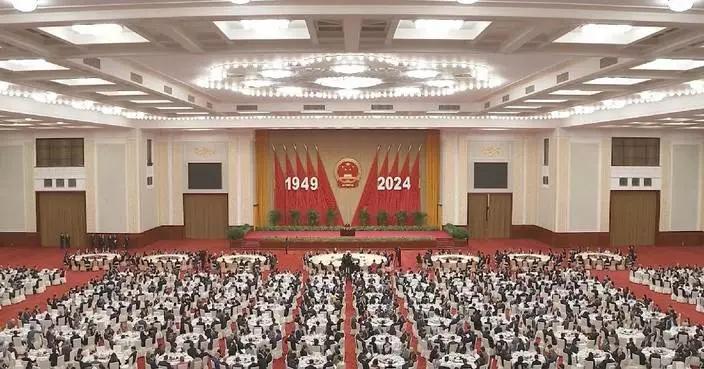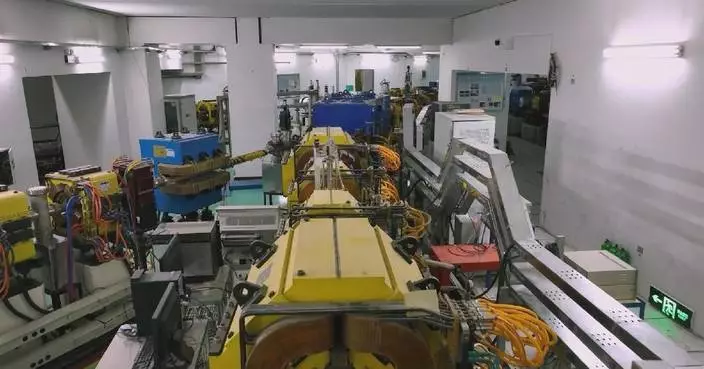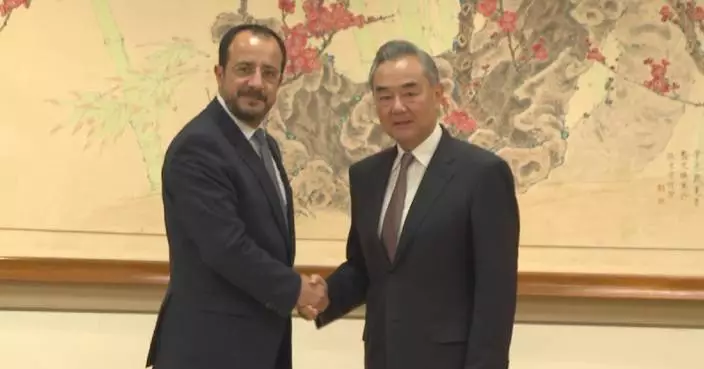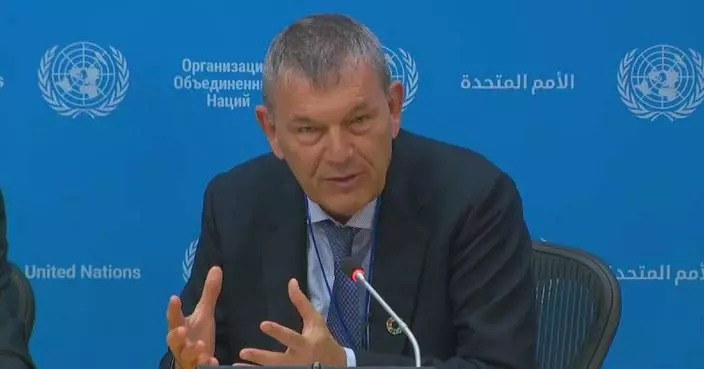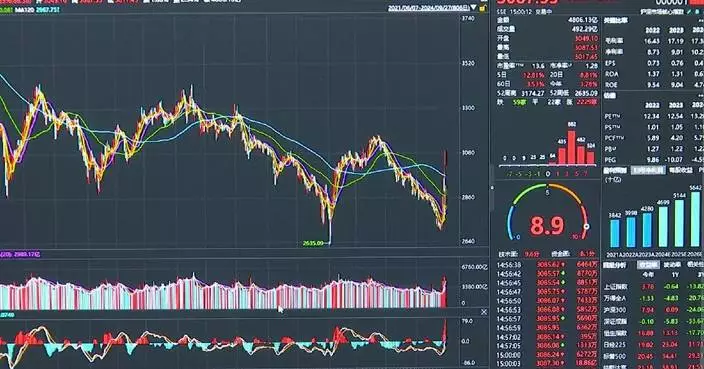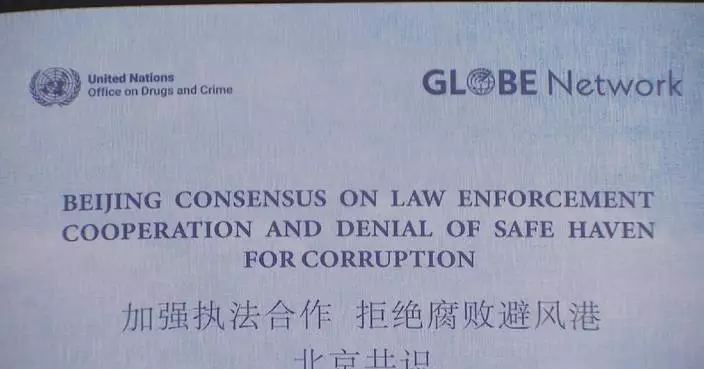Guided by President Xi Jinping's economic thought, China has pursued rural revitalization and deeper global economic integration, which benefits its people and the world.
Hebian, once a poverty-stricken village in Yunnan Province, now flourishes with local cooperatives, showcasing China's high-quality development model.
"In the past, I took jobs away from the village as a waiter, well driller, porter, and chef assistant. Now, I am the general manager at our village's cooperative," said Zhou Zhixue, CEO of Hebian Village Cooperative.
Deep in the mountains of Yunnan Province in southwest China, Hebian Village once suffered from extreme poverty. Humans and animals used to share living spaces. Young people dreamed of escaping the confines of the mountains. Today, the village has built guest houses for those keen to explore the rainforests. Many young people who once left have now returned, drawn by new opportunities.
"This is a microcosm of Chinese modernization. There are many such villages in China that are exploring how to connect traditional small-holder agricultural lifestyle with modernity," said Li Xiaoyun, a professor of China Agricultural University.
"Rural revitalization is a major task in realizing the great rejuvenation of the Chinese nation. It's all about keeping the issues related to agriculture, farmer and rural area at the top of our agenda, and following the path of socialist rural revitalization with Chinese characteristics," Xi said at the National Poverty Alleviation Summary and Commendation Conference on Feb 25, 2021.
Agriculture is China's most fundamental and important sector. In 2017, Xi pointed out that China's economy had shifted from a phase of rapid growth to a phase of high-quality development. He proposed to implement the rural revitalization strategy and chart a new course for rural development.
"Our most valuable and crucial experience is having established a mechanism centered around farmers to drive the development of rural industries," said Li.
Under the guidance of Xi Jinping's economic thought, rural industries in China have thrived, increasing farmers' income and enhancing the quality of their life. Overall, the country's GDP has grown from 54 trillion yuan in 2012 to 121 trillion yuan in 2022, with its share of the global economy increasing from 11.3 percent to 18 percent.
"So when I tell you China accounts for 30 percent of global growth, that's just a mechanical effect. Every one percentage point faster growth in China on average leads to the 0.3-percent increase in output in other countries over time. That's the second effect. That's the spillovers from faster growth in China," said Steven Alan Barnett, Senior Resident Representative in China of the International Monetary Fund (IMF).
Today, with the rapid development of the global digital economy, China positions data as a key production factor and speeds up the development of new quality productive forces. The Dalian High-Tech Zone is among the first of China's national high-tech zones.
"When these partners have shares here, they will take the entrepreneurship project as their own business. This not only improves the work efficiency, but also gives us more energy and time to focus on project development and product research," said Li Lingye, general manager of Wanyida Education Consulting Co., Ltd.
When President Xi visited Dalian in August 2013, he described the zone as both a magnet of technological resources and an incubator for innovation.
"China attaches great importance to sci-tech innovation and is committed to promoting global cooperation in sci-tech innovation with a more open attitude, and actively participate in global innovation networks, so as to foster new growth momentum for economic development," Xi said at the opening ceremony of the 2021 Zhongguancun Forum.
Xi places innovation at the forefront of the new development philosophy, since innovation can drive industrial upgrading, improve production efficiency, and optimize the economic structure.
The China International Import Expo (CIIE) is a global trade event personally conceived, proposed, planned and promoted by Xi. Since 2018, the CIIE has been held six times, serving as a platform for China to promote high-standard opening-up and as an international public good shared globally.
"We will not change our resolve to open wider at a high standard; we will not change our determination to share development opportunities with the rest of the world; and we will not change our commitment to an economic globalization that is more open, inclusive, balanced and beneficial for all," said Xi when delivering a keynote speech at the opening ceremony of the fourth China International Import Expo.
To promote greater openness, China has released its latest negative list for foreign investment. Starting Nov 1 this year, all restrictions on foreign investment in the manufacturing sector will be removed.
"So reducing restrictions is obviously important. Creating a good business environment is arguably maybe even more important. But to actually attract the investment, it's gonna be really important to have a really strong business environment," said Barnett.
Xi Jinping's economic thought emphasizes the creation of a new development paradigm with domestic circulation as the mainstay, and domestic and international circulations reinforcing each other, in order to facilitate the smooth flow of economic activity.
"President Xi Jinping comes up and tells the whole world that socialism is not a dogma. It is a science to action. He starts a process of capital accumulation and expanding production and ensuring the happiness of Chinese. And he is telling the world: please, we are here to help," said Mbita Chintundya Chitala, Zambia's Former Deputy Minister of Finance.
In July, China pointed out that by 2035, it would build a high-level socialist market economic system in an all-round way, which is an important guarantee for the realization of Chinese modernization.
"Our house is a work of art, built by the villagers themselves. If we keep going like this, we will have a certain advantage in ten years," said Zhou.
"We will continue to follow the Chinese path to modernization to achieve the rejuvenation of the Chinese nation, and we will continue to promote the building of a community with a shared future for mankind. By doing so, we will create new opportunities for the world with new advances in China’s development and contribute our vision and strength to world peace and development and human progress," Xi said at the 22nd meeting of the Council of Heads of State of the Shanghai Cooperation Organization on September 2022.
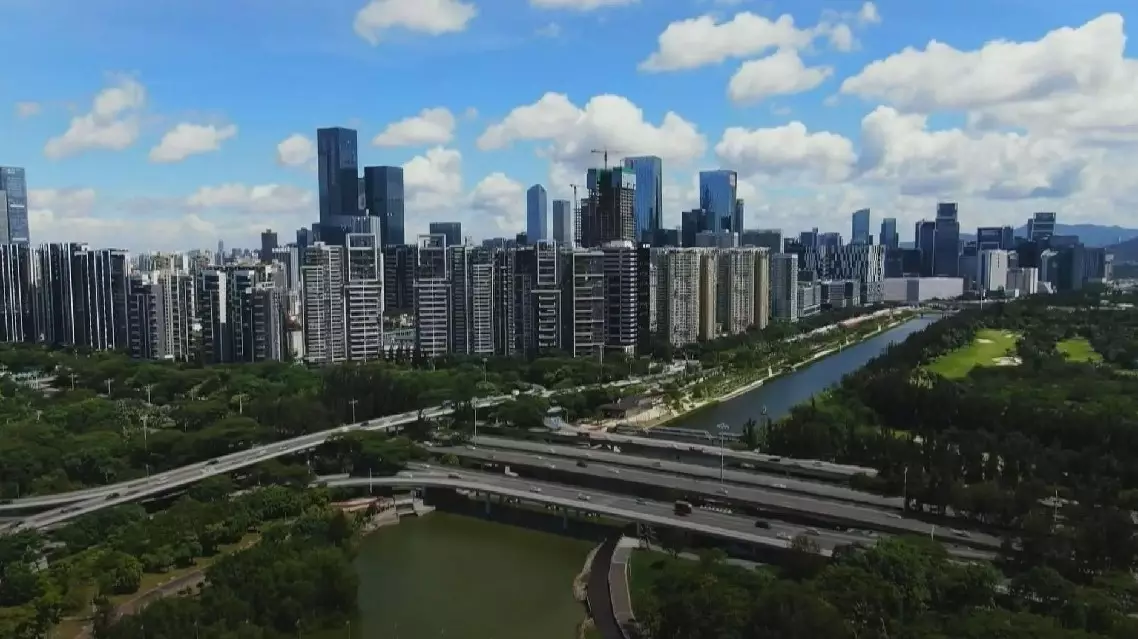
China's economic growth benefits world
Chinese President Xi Jinping has on many occasions emphasized the vital role of confidence in Chinese culture, calling for increased cultural exchanges through Global Civilization Initiative (GCI) which he proposed.
On July 27 of this year, at the 46th session of the UNESCO World Heritage Committee in New Delhi, the Beijing Central Axis, a symbol of the ideal order of the Chinese capital, was officially added to the World Heritage List.
This recognition highlights not only the architectural and historical importance of the central axis, but also the growing global appreciation for China's cultural treasures and conservation efforts. China now ranks second in the world with 59 World Heritage Sites, and Beijing stands out as the city with the most World Heritage Sites globally.
"China has shown its commitment to natural and cultural heritage conservation, especially now with 59 amazing sites around China since joining the World Heritage convention in 1985. This is a wonderful achievement for China and for the world," said Shahbaz Khan, director of the United Nations Educational, Scientific and Cultural Organization (UNESCO) regional office for East Asia.
"China is a great country with a great civilization. The time-honored history of China and its splendid civilization is the source from which our confidence and strength are derived," said Xi in his 2024 New Year address delivered on the last day of 2023.
A testament to China's civilization is the archeological sites of Liangzhu located in the Yangtze River Delta in east China. These ruins reveal an early state with a unified belief system based on rice cultivation in the Late Neolithic China.
Rice, a staple crop nearly synonymous with China, was cultivated as early as 10,000 years ago. At the Shangshan site, near Liangzhu, archaeologists found the world's earliest known domesticated rice grains, marking the spread of rice cultivation across China and beyond.
In Liangzhu, charred grains from 5,000 years ago were uncovered in a granary, weighing around 200 metric tons - evidence of a thriving, sustainable community.
"Over 5,000 years ago, communities emerged along the rivers in ancient Egypt and India, and like them Liangzhu was a similar state-level society," said Liu Bin with the School of Art and Archaeology, Zhejiang University.
Thousands of jade artifacts, including headpieces, necklaces, bracelets, were also unearthed from tombs. Far from being mere ornaments, these objects played a central role in rituals and ceremonies, reflecting the belief system and cultural sophistication of the Liangzhu society.
The advanced nature of this early urban civilization is further evidenced by impressive earthen monuments, stone tools, and pottery, along with its highly organized urban planning, sophisticated water conservation system, and a clear social hierarchy, as seen in the differentiated burials within cemeteries.
In 2019, the Archaeological Ruins of Liangzhu earned the UNESCO World Heritage status, described as "an outstanding representation of a prehistoric early state and urban civilization." This recognition offers a window into a Chinese civilization that began over 5,000 years ago.
However, even before this global recognition, Liangzhu had already captured the attention of top archaeologists worldwide, including Colin Renfrew, a renowned professor emeritus at the University of Cambridge.
"Liangzhu is a particularly important site, because it takes us back nearly 1,000 years before what was thought of was the first civilization of China," Renfrew said.
The ruins of Liangzhu might not have gained global recognition without the efforts of the Zhejiang provincial government two decades ago.
In the early 2000s, the site was surrounded by about 30 mining operations, creating heavy industrial pollution. But the situation started to change in the summer of 2003, when Xi Jinping, then secretary of the Zhejiang provincial committee of the Communist Party of China (CPC), visited the site. He recognized its significance, noting that Liangzhu was clear evidence of a 5,000-year-old Chinese civilization.
Years later, in 2016, Xi stressed the importance of protecting ancient ruins in a letter to several prominent archaeologists. He emphasized how these sites deepen our understanding of China's long and rich history and the value of Chinese civilization.
The preservation of the Liangzhu ruins is just one aspect of China's broader efforts to trace the origins of its civilization. In 2022, Xi said such efforts have given clarity to the evolution of Chinese civilization, and the development of its pluralistic and integrated pattern. This growing awareness of China's ancient and profound history is also fostering greater confidence in Chinese culture.
Xi has repeatedly stressed the importance of maintaining unwavering cultural confidence, seeing it as essential to national pride and identity.
"Culture is the soul of a country and nation. Our country will thrive only if our culture thrives, and our nation will be strong only if our culture is strong. Without full confidence in our culture, without a rich and prosperous culture, the Chinese nation will not be able to rejuvenate itself," Xi said.
In 2023, in his congratulatory message to the inaugural Liangzhu Forum, Xi called on all parties to make the best of the Liangzhu Forum, to implement the Global Civilization Initiative and to further facilitate exchanges and mutual learning between civilizations.
This initiative, which Xi proposed in March 2023, calls for respect for the diversity of civilizations, the preservation and innovation of cultural heritage, humanity's common values, and stronger international cooperation through people-to-people exchanges.
"This initiative is more relevant than ever before. As Xi's thought about global civilization, is strongly based on, if there is a single flower in a garden, then there would not be a spring. We need to have all the flowers to have a real spring," said Shahbaz Khan, director of the UNESCO Multisectoral Regional Office for East Asia (UNESCO Beijing).
China's commitment to cultural exchange is not new. It has a long history, stretching back to ancient times. From Zhang Qian's diplomatic missions to the Western Regions, to Xuanzang's quest for Buddhist teachings, from Marco Polo's travels to China, to Zheng He's seven voyages to the West, China has always sought to foster connections with the world, demonstrating its enduring role in global cultural dialog.
A modern example of this is the ongoing cultural exchanges between museums worldwide. In Shanghai, an exhibition featuring nearly 800 artifacts from different periods of ancient Egypt has further strengthened the historical bond between China and Egypt.
The exhibition, titled "On Top of the Pyramid: The Civilization of Ancient Egypt," is a remarkable display of cultural exchange at Shanghai Museum.
Over 95 percent of the 788 artifacts are being shown in Asia for the first time, offering a rare opportunity to explore the world of the pharaohs.
Within the first month of its public opening on July 19, the exhibition attracted nearly 320,000 visitors.
"This exhibition provides a comprehensive introduction to ancient Egyptian civilization. It also presents ancient Egypt from a Chinese perspective and the viewpoint of local Egyptian researchers. Sharing the artifacts through a Chinese lens holds special significance for promoting mutual understanding between civilizations," said Yan Haiying, one of the organizers of the exhibition.
The artifacts, including statues of famous pharaohs like Ramses II, along with mummies and intricately designed jewelry, represent not just ancient Egyptian culture, but also the deepening cultural ties between Egypt and China. The two civilizations first encountered each other along the Silk Road, and this exhibition serves as a modern-day extension of that historical dialog.
"It's really wonderful to see and to show the Chinese people from every part of the ancient Egyptian civilization. Some of them were recently discovered in 2020 and its first time to be shown to the public. This is just to show our deep relationship with China and Chinese people. Shanghai is only just the beginning. We have more offers now from different museums in China in order to get more artifacts and more exhibition," said Mohamed Ismail Khaled, secretary general of the Supreme Council of Antiquities.
The exhibition will run for 13 months, featuring a wide array of cultural activities aimed at deepening the exchange between these two civilizations. Visitors from around the world will have the opportunity to engage with this historic exchange, fostering a deeper understanding and connection between China and Egypt.
Such cultural exchanges foster deeper understanding and connection between civilizations, and will help put into practice China's ambition to develop an advanced socialist culture.
"Now at a new starting point, we must persist in cultivating a thriving and strong socialist culture as well as a modern Chinese civilization. These represent our new cultural missions in the new era," said Xi when delivering an important speech at a symposium on cultural inheritance and development on June 2, 2023.
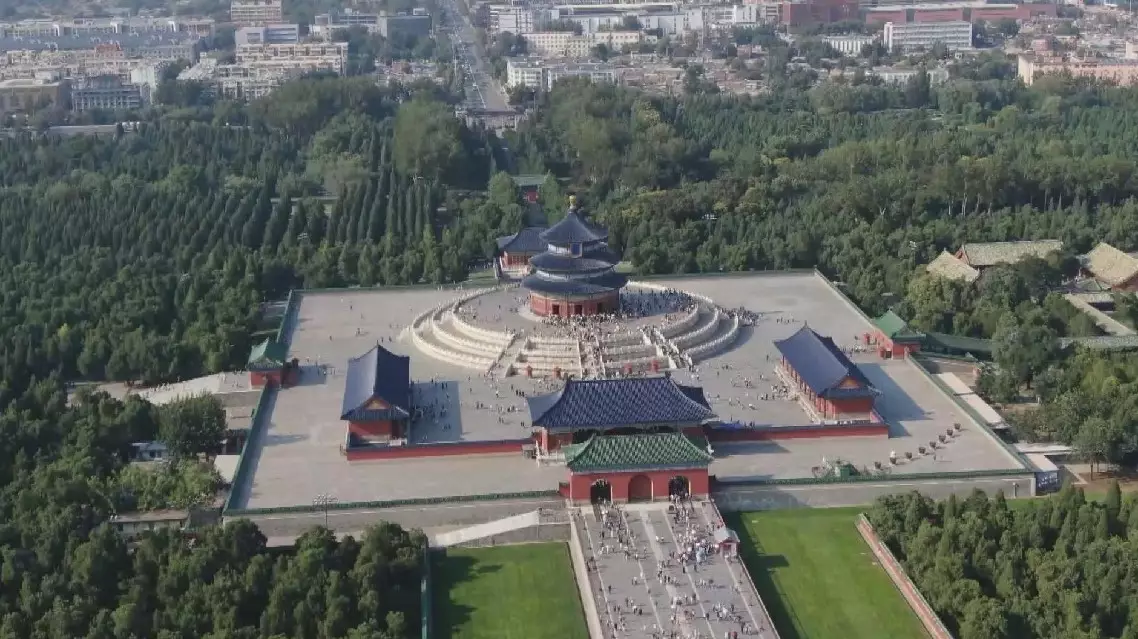
China committed to natural and cultural heritage conservation




